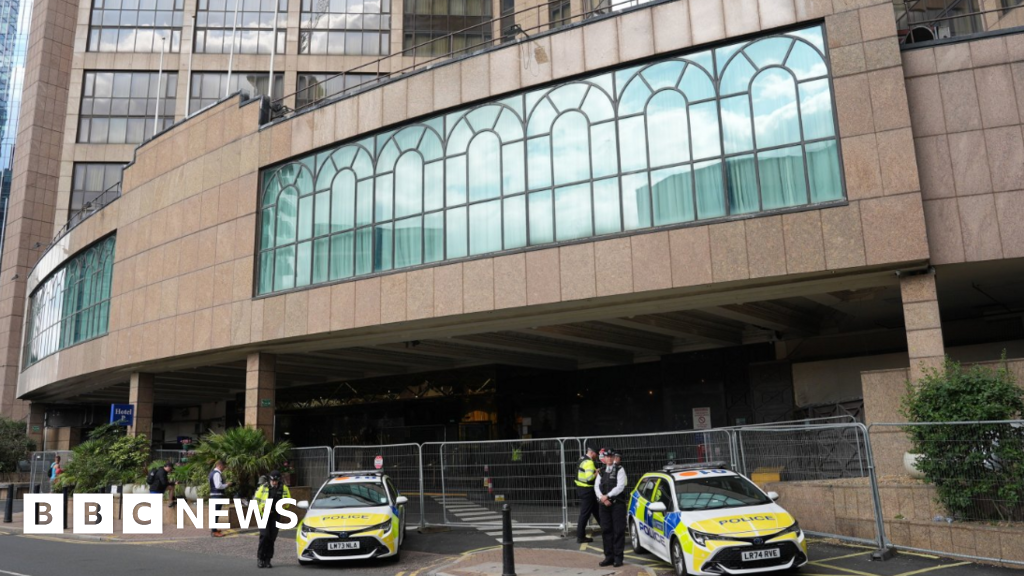Home Office set to halve time asylum seekers spend in hotels
- BBC News
The Home Office is set to halve the number of days someone granted asylum in the UK can stay in government accommodation.
Ministers doubled the grace period given to refugees to transition from supported housing to their own accommodation from 28 to 56 days in December.
That move came after councils and charities warned about rising levels of refugee homelessness, but the government says it was only ever intended to be a temporary change.
Some shelters said the change had been effective, but ministers have decided to revert to the shorter period from September, a decision charities say they are "appalled" by.
The government say they will still work with other bodies to provide the "necessary assistance" for newly-recognised refugees.
Families, pregnant women, people over the age of 65 and disabled people will continue to be given 56 days until December, when the policy will be reviewed again.
Officials said in December that the doubling of the period was designed to support local authorities, but that it was "an interim measure" expected to be in place until June 2025 when it would be reassessed.
The government has pledged to end the use of asylum hotels by 2029, but figures released earlier this month showed the number of asylum seekers in hotels had risen slightly since Labour came to power.
Home Office data also suggests that ministers may have found a way to break the link between the number of people arriving in small boats and the number housed in asylum accommodation.
Officials have been processing asylum claims faster than before the general election, meaning that over the long term there may be fewer people in the system needing housing support provided by the Home Office.
Charity bosses in the homelessness and asylum sectors have said they are "appalled" by the Home Offices decision to revert back to the 28-day refugee support period.
More than 70% of organisations working in the homelessness and asylum sectors said the move to 56 days had reduced the risk of homelessness, according to research by the No Accommodation Network (Naccom), an umbrella group.
In a joint statement, the director of Naccom and the chief executive of the charity Homeless Link, said the reduced time "will put even more pressure on overstretched local authorities and voluntary sector services".
They said that evidence they had gathered showed the move to a 56-day period had been effective and said the change would "ultimately result in more instances of rough sleeping and homelessness among new refugees".
The boss of one homeless shelter, who did not wish to be named, said that "trying to further speed this process up, whilst also halving move on time is only going to exacerbate" homelessness among refugees.
They added: "The government and others may wish to end the use of hotels, but surely we can all agree that the solution to this shouldnt be to simply push people onto the streets?
"We have seen a huge growth in the numbers of refugees becoming homeless [over the last two years] as the Home Office processes the asylum backlog at speed without adequate support for those granted leave to remain."
The governments Homelessness Reduction Act, which was implemented in 2018, acknowledged that at least 56 days are usually needed to find accommodation.
A refugee granted leave to remain is a move-on period to find somewhere to live before they are evicted from Home Office accommodation.
If a newly-recognised refugee does not find somewhere to live in that time, they often declare themselves as homeless to a local authority.
In recent years, a lack of available accommodation options has meant many councils and charities have had to use more expensive options, such as hotels and bed and breakfasts, to house those in need.
Some charities have argued that a 56-day period is more likely to give refugees enough time to find a job and somewhere to live, in part because Universal Credit payments are more likely to have kicked in by that point.
A government spokesperson said they had "inherited a broken asylum and immigration system" and were "taking practical steps to turn that chaos around".
They said they would "work with local councils, NGOs and other stakeholders to ensure any necessary assistance is provided for those individuals who are granted refugee status".
The Local Government Association was contacted for comment.